"Our communities have expressed their distrust of the City of Minneapolis and the Minneapolis Police Department, and are demanding to be heard and included in the decision making process," said J Randolph of the Phillips West Neighborhood Organization.
Tesha M. Christensen
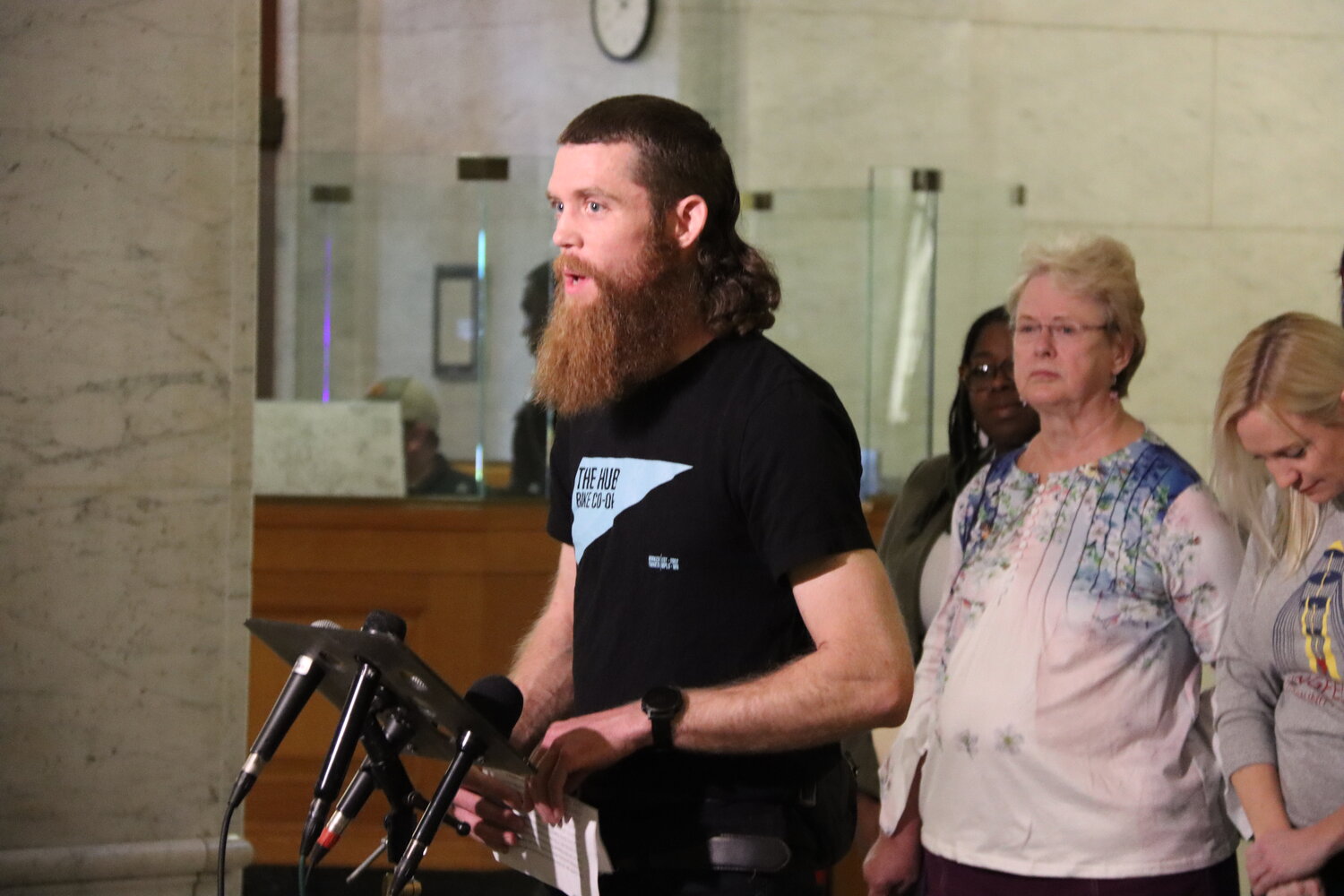
Henry Slocum of The Hub Bike Co-op stated: For 20 years, we’ve been putting democracy to work on Minnehaha Ave in the shadow of the precinct building. We’re asking now that the City of Minneapolis change course and honestly attempt to do the same. Consent is built on mutual trust, which we as business owners desperately want to build with the City. Until a month ago, not once had a City official come to talk with members of our business community about our visions, hopes, and concerns, or even how we had been impacted by the police murder of George Floyd and the events that followed. In the past three years, we’ve had robust conversation and process among neighbors, community, and business partners, facilitated by various groups and organizations, about the issues we face and development plans that meet our neighborhood’s needs. If the City of Minneapolis wants to say that concerned residents and business owners engaged in the process of deciding where to locate a future 3rd precinct building, it has significantly more work to do. We cannot consent to a decision for which we have no context or background, as we have no opportunity to genuinely understand the implications of that decision on our present and future. Why the rush now after years of silence? We need to take the time to understand the City’s need for a physical Third Precinct, what sites have been considered, why certain sites weren’t brought forward as potential locations, along with hearing constructive arguments for why locating a Third Precinct at either of these sites has positive impacts for our community. How are our concerns being addressed through this process if the City hasn’t shown any interest in even learning what those concerns are?
Tesha M. Christensen
Community leaders speak at a press conference at city hall on Tuesday, May 16, and push for a new community engagement process around the Third Precinct.
Tesha M. Christensen
MIDTOWN PHILLIPS STATEMENT: Ruby Levine, the board chair of the Midtown Phillips Neighborhood Association, couldn’t be here today," said Rachel Boecke of the Longfellow Community Council. "She asked me to share that she attended the 3rd Precinct community conversation at the Midtown Global Market and was dismayed at the way the overwhelming disapproval of any new 3rd Precinct building was dismissed by city officials at the meeting. She also asked me to share this statement, 'We need a new process that actually listens to our community’s needs, instead of a false choice between two unpopular options.'”
Tesha M. Christensen
Lauren Callis of Curiousity Studio at 36th and E. Lake speaks at the Third Precinct press conference on May 16, 2023 at Minneapolis City Hall. Curiosity Studio is one of 17 businesses and organizations who co-signed the resolution with the Longfellow Community Council asking for more outreach before a decision is made by the city about the Third Precinct building.
Tesha M. Christensen
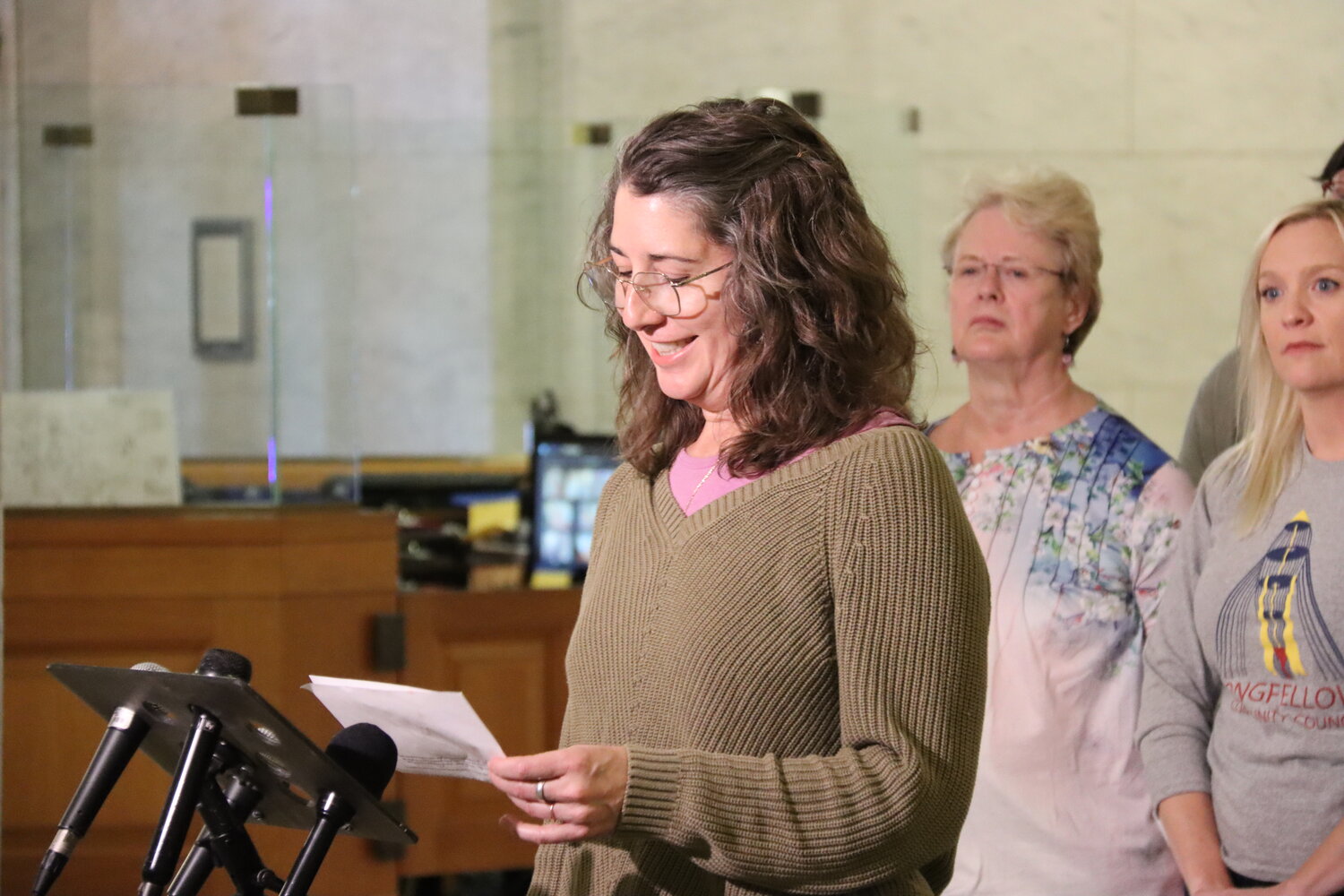
Two Bettys Green Cleaning owner and Longfellow Business Association vice president Anna Tsantir speaks at the Third Precinct press conference on May 16, 2023 at Minneapolis City Hall. She said: I am Anna Tsantir. I own Two Betty’s Green Cleaning CO in Longfellow. We work from 2 locations - one is .3 miles from the Third Precinct. We employ over 100 people and have been around for 18 years.
This community has been through a lot, and it deserves more transparency, and above all else - a vision for the future to pull us through and into an innovative future where safety is for everyone.
The void that has been created by a lack of those things has only deepened divisions and mistrust. A leader, leaderships’s, responsibility is to manage both reality and perception. I don’t know, if in this critical time, this “strong” mayor has managed either due to the lack of communication and collaboration in our neighborhoods.
Therefore - this last minute choice regarding the Third - that does not address what will go on within the walls of the Third, when no neighborhood rebuilding of trust with Minneapolis Police Department has been felt - is a non choice because it skips way ahead of where we are as a community, and it bypasses a lot of us conveniently.
It’s a recipe for a repeat of mistrust and fear-based divisions in years ahead. That there has been such an abject failure to really work with businesses and neighborhoods after the Uprisings. Listening sessions are not enough - and at this point are just reliving the past with no future plan to get on board with.
We need a vision - and we need collaboration. And that would require much more transparency.
Tesha M. Christensen
Lauren Callis of Curiousity Studio at 36th and E. Lake speaks at the Third Precinct press conference on May 16, 2023 at Minneapolis City Hall. Curiosity Studio is one of 17 businesses and organizations who co-signed the resolution with the Longfellow Community Council asking for more outreach before a decision is made by the city about the Third Precinct building.
Tesha M. Christensen
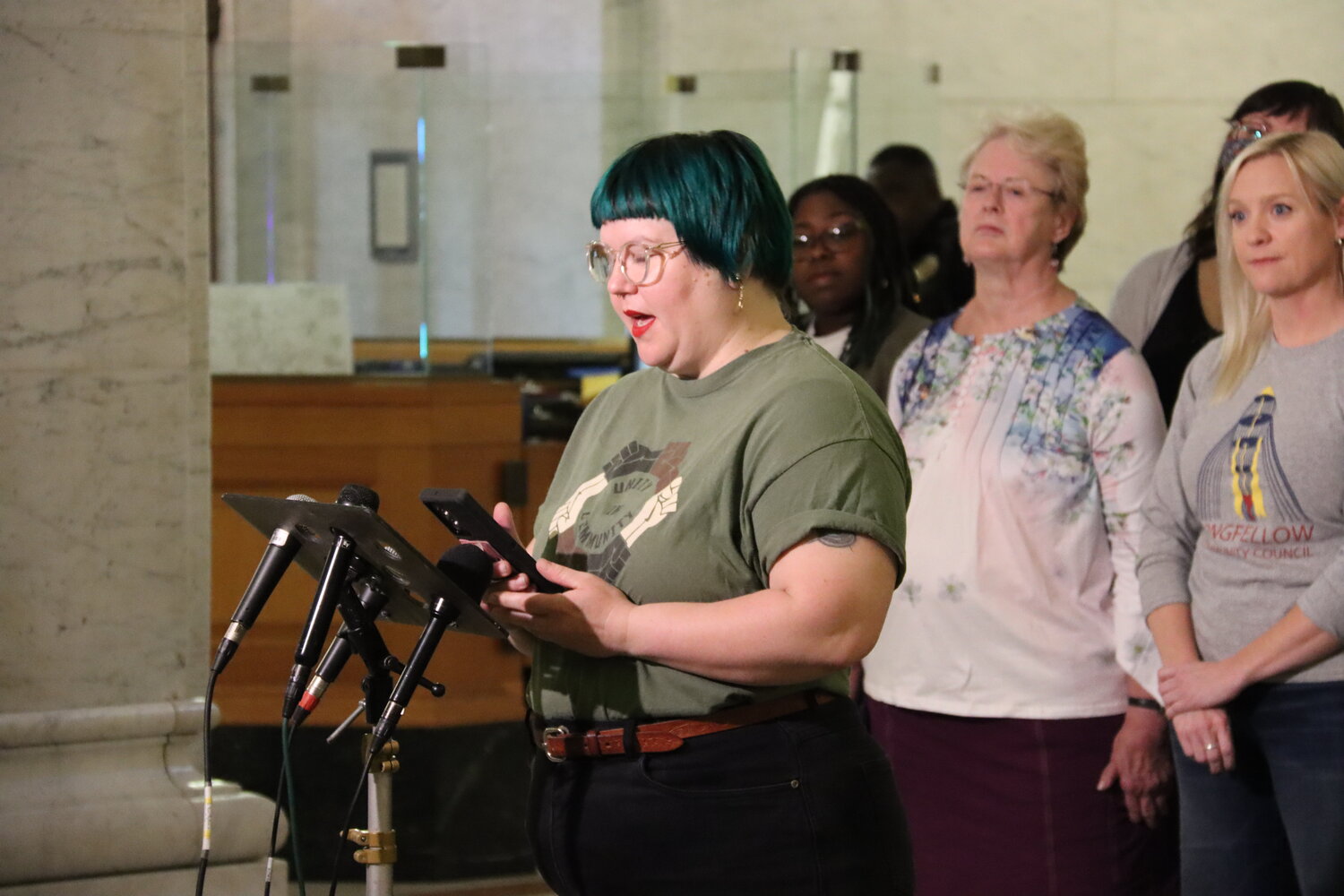
Nickey Robare ofthe PPNA board of directors said:
The effects of the night in 2020 when the Third Precinct burned have stayed with me - I find myself and many of my neighbors continue to struggle with PTSD from the MPD’s behavior before and throughout the uprising following the murder of Mr. George Floyd. The same night as the third precinct fire, the art studio I shared in the Ivy Building was also destroyed by a fire that a group of us renters attempted to put out with small fire extinguishers and garden hoses. In our studio alone, we lost tens of thousands of dollars of equipment and work..
The reality of PTSD is that your nervous system does not know the difference between trauma that is happening right now and trauma that happened long ago. The community members of the Third pPrecinct are traumatized. Last month I saw a room full of business owners in tears because the city is pushing forward a return to the status quo without any attempt at building trust and addressing the community’s trauma.
There has been a narrative created that business owners who lost property during the uprising blame the protestors. But for myself and many other local business owners, that could not be further from the truth. The commitment to the fight for Black lives and an end to state violence remains steadfast. We need to see that the city of Minneapolis cares about us before they even begin to consider rebuilding the third precinct. People over property, always.
Tesha M. Christensen
Standish-Ericsson Neighborhood Association staff member Kate Gens speaks at the Third Precinct press conference on May 16, 2023 at Minneapolis City Hall. "We want our residents and businesses voices to be heard," said Gens, pointing out that it will build trust and justice.
Tesha M. Christensen
Sam Gould of Confluence Studio speaks at the Third Precinct press conference on May 16, 2023 at Minneapolis City Hall. In the wake of the protests after George Floyd's murder, Gould helped organized neighbors to care for one another and to do the work that needed to be done, he said. Neighbors gathered supplies and fought fires that the Minneapolis Fire Department couldn't get to. He pointed out that the violence done by officers at the Third Precinct existed for decades before George Floyd was murdered. "Here is a moment for us to do things differently," said Gould. "Our neighborhood – we experienced something the world watched. We have a moment now to change that narrative. To do something different."
Tesha M. Christensen
Tabitha Montgomery of Powderhorn Park Neighborhood Association speaks at the Third Precinct press conference on May 16, 2023 at Minneapolis City Hall.
Tesha M. Christensen
Ann Zawistoski of the Hale Page Diamond Lake Community Association stands in support of more community engagement during the Third Precinct press conference on May 16, 2023 at Minneapolis City Hall.
Tesha M. Christensen
Third Precinct Press Conference May 16, 2023 Minneapolis City Hall
Tesha M. Christensen
Third Precinct Press Conference May 16, 2023 Minneapolis City Hall
Tesha M. Christensen
Third Precinct Press Conference May 16, 2023 Minneapolis City Hall
Tesha M. Christensen
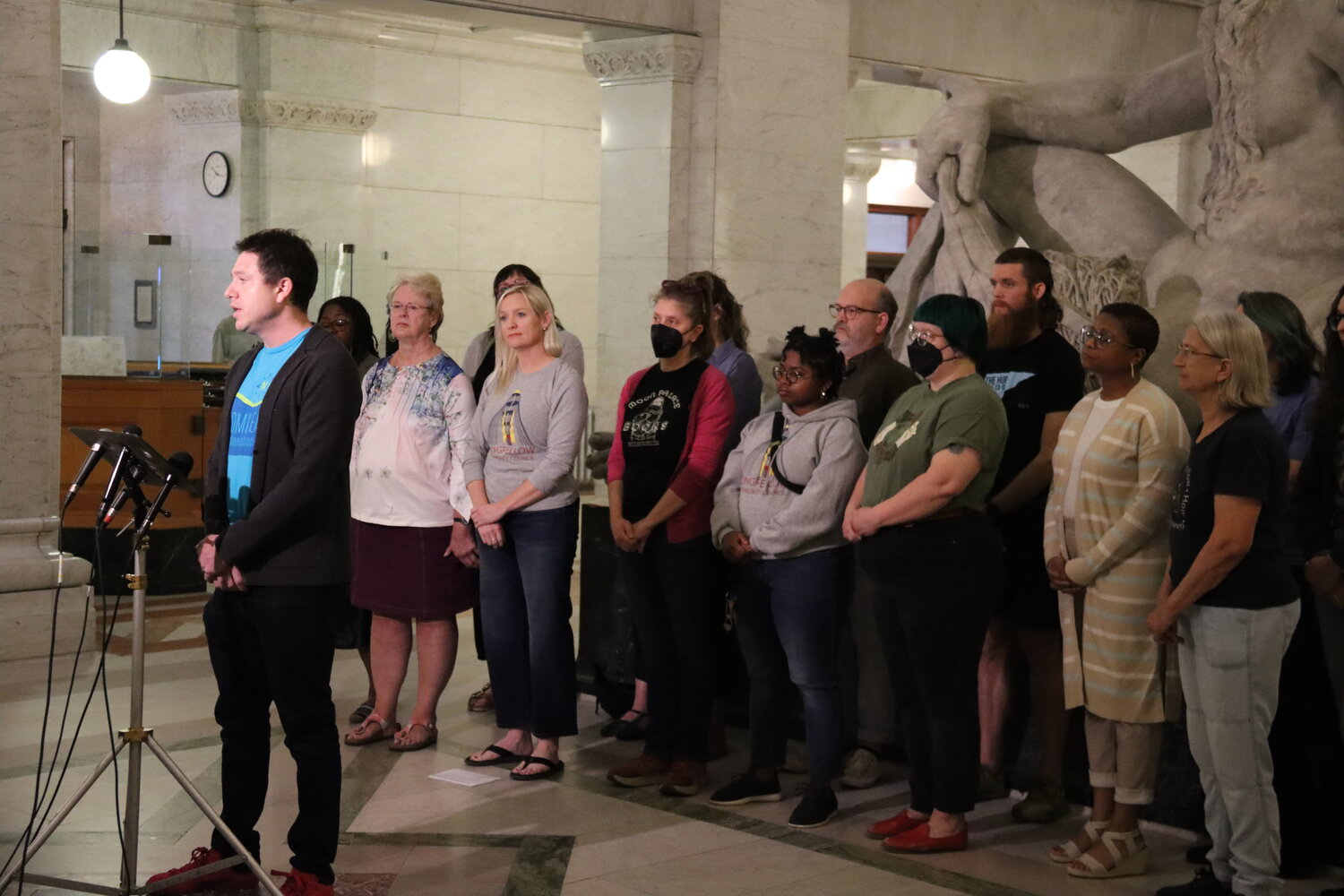
Nokomis East Neighborhood Association Executive Director Brandon Long speaks at the Third Precinct press conference on May 16, 2023 at Minneapolis City Hall. He said: As someone who has worked in the neighborhood organization systems of both of the Twin Cities I can confidently tell you that the
City of Minneapolis views engagement as a checkbox. Something to be done at or to us rather than with us. It's "public relations" at
best. This debacle around the 3rd Precinct does not surprise me in the slightest. NENA did not hesitate to stand with LCC in their
demands because this is too important of an issue to allow the City to, once again, use our organizations as cover for their terrible
decisions. Electeds seem to think that they only need our opinions once every four years. We are here to remind them that is not true.
The irony to all of this is that the City won't touch the police department's budget but never hesitates to slash ours. NENA requires, at
minimum, $250,000 to operate every year and the City has us down to $56,000. We are the organizations that build community, make
our neighborhoods safer, provide block parties and art festivals, support food shelves and raise money for rental assistance. We
manage to not murder anyone. I do not want to hear the City talk about community safety if they are unwilling to fund organizations
that build community and provide basic needs while railroading communities into accepting a fortress of trauma. The least they can do
is let a proper engagement process play out. Let the community make a real decision.
Tesha M. Christensen
Seward Neighborhood Group Community Organizer Jasmine Epps-Flowers observed that the recent city meetings on the Third Precinct did not have translators, not for Somali residents or for those who are deaf. "I think it was really poorly done," said Epps-Flowers. She added, "We cannot say we're being inclusive if there are no translators."
Tesha M. Christensen
Seward Neighborhood Group Board President Lisa Boehlke pointed out that Seward was directly affected by the civil unrest after the murder of George Floyd by four Minneapolis police officers. The SNG released this statement: The Seward Neighborhood Group supports the Longfellow Community Council’s call for a delay in any decision regarding the location of a 3rd Precinct building, and for a comprehensive community outreach process regarding the future of policing in the 3rd Precinct. At this time the Seward Neighborhood Group opposes locating a 3rd Precinct building at either 3000 Minnehaha Avenue or 2600 Minnehaha Avenue. Further, the Seward Neighborhood Group requests that the City of Minneapolis pilot new ideas for the delivery of public safety services in the 3rd Precinct, including but not limited to a decentralized approach to housing 3rd Precinct staff.
Tesha M. Christensen
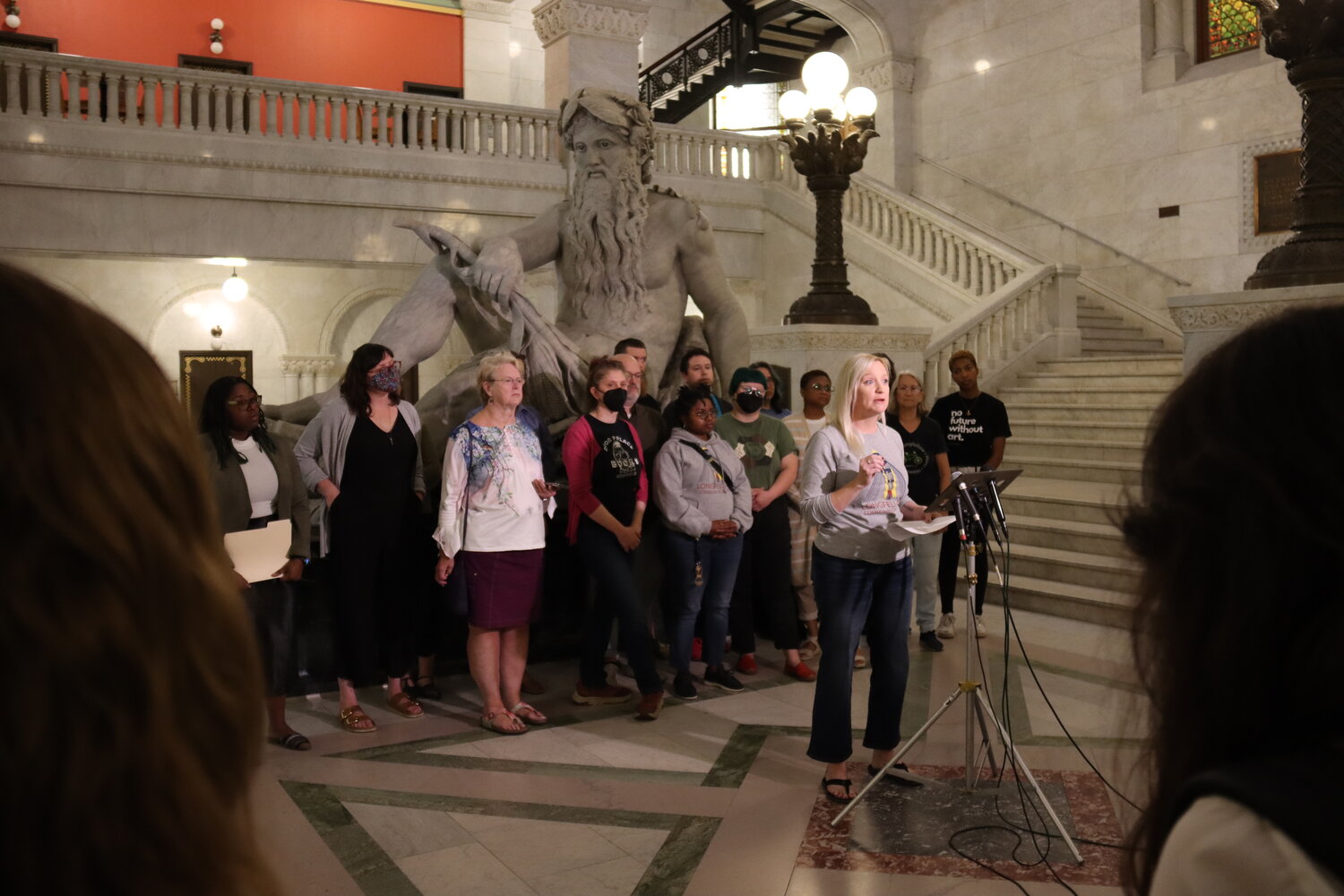
Hello and thank you for joining us today. My name is Rachel Boeke and I am the Executive Director for Longfellow Community Council serving the nearly 22,000 residents of the greater Longfellow community - made up of the Longfellow, Cooper, Hiawatha and Howe neighborhoods. Since the summer of 2020, residents and business owners have consistently reached out to LCC asking what was going to happen with the 3rd precinct police building sitting at the corner of Lake Street and Minnehaha Avenue. As we all know, that building remains as it has for three years. Surrounded in cement barriers and barbed-wire, it is a charred reminder of the uprising stemming from murder of George Floyd.
When we passed these questions along to city officials, we didn't get any answers. That led LCC to organize community conversations in May of 2022, bringing residents and business owners together to talk about their visions for the future of the building at 3000 Minnehaha Ave. and if it should be reopened as a precinct or put to another community use.
From those conversations we learned several things. First ,that there was a clear need for trauma recovery support for people across the city. People stated that no work had been done to support residents and businesses deeply impacted during the uprising of 2020. They said they felt abandoned by the city and excluded from any decisions being made that would impact the daily lives of so many. We also learned that the clear majority - 75% - of those who joined our conversations did not want police back in the location at Lake Street and Minnehaha Avenue stating reasons such as "Renovating that site for MPD would be crushing to the community - a direct insult to further traumatize the community and perpetuate harm."
After sharing the results of those conversations with the city, council member Robin Wonsley pushed for dedicated city funding for greater community engagement regarding what should happen to the former 3rd Precinct building. That effort passed council unanimously with the purpose of engaging community in broad conversation about where residents want the 3rd Precinct building - at the former site or in a new location - and how that building should serve the community.
It was only after the contract to do that work had been signed that a change of plan was announced. Instead of a year-long process, residents would have only weeks to provide feedback to the city. And instead of those larger community-led conversations, the question put to community was a short either or. The new process was just to ask residents if police should return to 3000 Minnehaha Ave or instead be located at 2600 Minnehaha, a short four blocks away. City officials indicated that a large list of properties were considered but only these two were potential options. The city has not released that list of properties or provided detailed information about why a larger list of options wasn't made available to residents. After nearly three years of inaction with the promise of intentional and thoughtful outreach, the accelerated timeline from the city with this process is opposed to the concept of real engagement.
I want to be clear about what LCC's role was in this current community outreach effort. Our task was to organize· locations for community meetings, inform residents and businesses across the 3rd Precinct that the events were happening and get people into the room to join the conversation· and share their opinions. LCC had to wait until the city's webpage, about the full outreach plan was live to share information about the community conversation meetings. That meant we weren't able to promote these events until 13 days before the first was scheduled to be held. As a neighborhood organization, LCC has to give community members a 21 day notice for big community decisions - like electing our board membership or large funding decisions. The future of the 3rd precinct building js an incredibly critical decision and deserves so much more than this current process has allowed.
LCC wanted to be involved in this community engagement process to include as many community members as possible believing that any decision about the future of the 3rd Precinct Site needs to be made by the people.
The city process became the opposite of that, which is why the LCC Board of Directors passed a resolution rejecting any decision made through this effort about the 3rd Precinct building until a new community engagement process has been carried out. An intentional and respectful community-led process with a focus on restorative justice.
LCC demands the development of a new timeline to define a shared community vision for a new facility or facilities, and how the former site of the 3rd Precinct should serve the community.
I stand here today with some of the 12 neighborhood organizations representing 19 neighborhoods of the 3rd precincts and 17 businesses and community organizations who have signed their support to that resolution.
Tesha M. Christensen
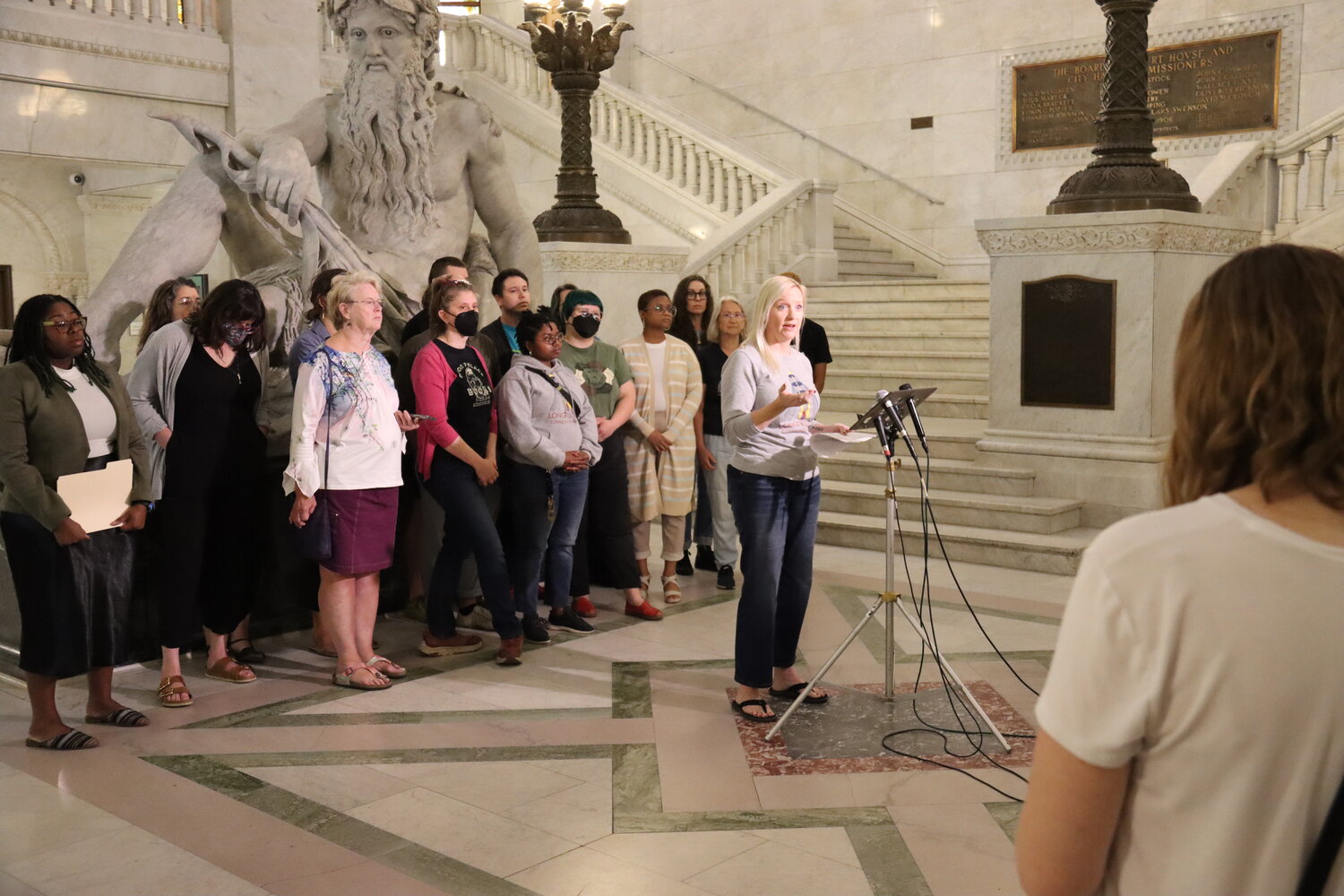
Hello and thank you for joining us today. My name is Rachel Boeke and I am the Executive Director for Longfellow Community Council serving the nearly 22,000 residents of the greater Longfellow community - made up of the Longfellow, Cooper, Hiawatha and Howe neighborhoods. Since the summer of 2020, residents and business owners have consistently reached out to LCC asking what was going to happen with the 3rd precinct police building sitting at the corner of Lake Street and Minnehaha Avenue. As we all know, that building remains as it has for three years. Surrounded in cement barriers and barbed-wire, it is a charred reminder of the uprising stemming from murder of George Floyd.
When we passed these questions along to city officials, we didn't get any answers. That led LCC to organize community conversations in May of 2022, bringing residents and business owners together to talk about their visions for the future of the building at 3000 Minnehaha Ave. and if it should be reopened as a precinct or put to another community use.
From those conversations we learned several things. First ,that there was a clear need for trauma recovery support for people across the city. People stated that no work had been done to support residents and businesses deeply impacted during the uprising of 2020. They said they felt abandoned by the city and excluded from any decisions being made that would impact the daily lives of so many. We also learned that the clear majority - 75% - of those who joined our conversations did not want police back in the location at Lake Street and Minnehaha Avenue stating reasons such as "Renovating that site for MPD would be crushing to the community - a direct insult to further traumatize the community and perpetuate harm."
After sharing the results of those conversations with the city, council member Robin Wonsley pushed for dedicated city funding for greater community engagement regarding what should happen to the former 3rd Precinct building. That effort passed council unanimously with the purpose of engaging community in broad conversation about where residents want the 3rd Precinct building - at the former site or in a new location - and how that building should serve the community.
It was only after the contract to do that work had been signed that a change of plan was announced. Instead of a year-long process, residents would have only weeks to provide feedback to the city. And instead of those larger community-led conversations, the question put to community was a short either or. The new process was just to ask residents if police should return to 3000 Minnehaha Ave or instead be located at 2600 Minnehaha, a short four blocks away. City officials indicated that a large list of properties were considered but only these two were potential options. The city has not released that list of properties or provided detailed information about why a larger list of options wasn't made available to residents. After nearly three years of inaction with the promise of intentional and thoughtful outreach, the accelerated timeline from the city with this process is opposed to the concept of real engagement.
I want to be clear about what LCC's role was in this current community outreach effort. Our task was to organize· locations for community meetings, inform residents and businesses across the 3rd Precinct that the events were happening and get people into the room to join the conversation· and share their opinions. LCC had to wait until the city's webpage, about the full outreach plan was live to share information about the community conversation meetings. That meant we weren't able to promote these events until 13 days before the first was scheduled to be held. As a neighborhood organization, LCC has to give community members a 21 day notice for big community decisions - like electing our board membership or large funding decisions. The future of the 3rd precinct building js an incredibly critical decision and deserves so much more than this current process has allowed.
LCC wanted to be involved in this community engagement process to include as many community members as possible believing that any decision about the future of the 3rd Precinct Site needs to be made by the people.
The city process became the opposite of that, which is why the LCC Board of Directors passed a resolution rejecting any decision made through this effort about the 3rd Precinct building until a new community engagement process has been carried out. An intentional and respectful community-led process with a focus on restorative justice.
LCC demands the development of a new timeline to define a shared community vision for a new facility or facilities, and how the former site of the 3rd Precinct should serve the community.
I stand here today with some of the 12 neighborhood organizations representing 19 neighborhoods of the 3rd precincts and 17 businesses and community organizations who have signed their support to that resolution.
Tesha M. Christensen
Third Precinct Press Conference May 16, 2023 Minneapolis City Hall
Tesha M. Christensen
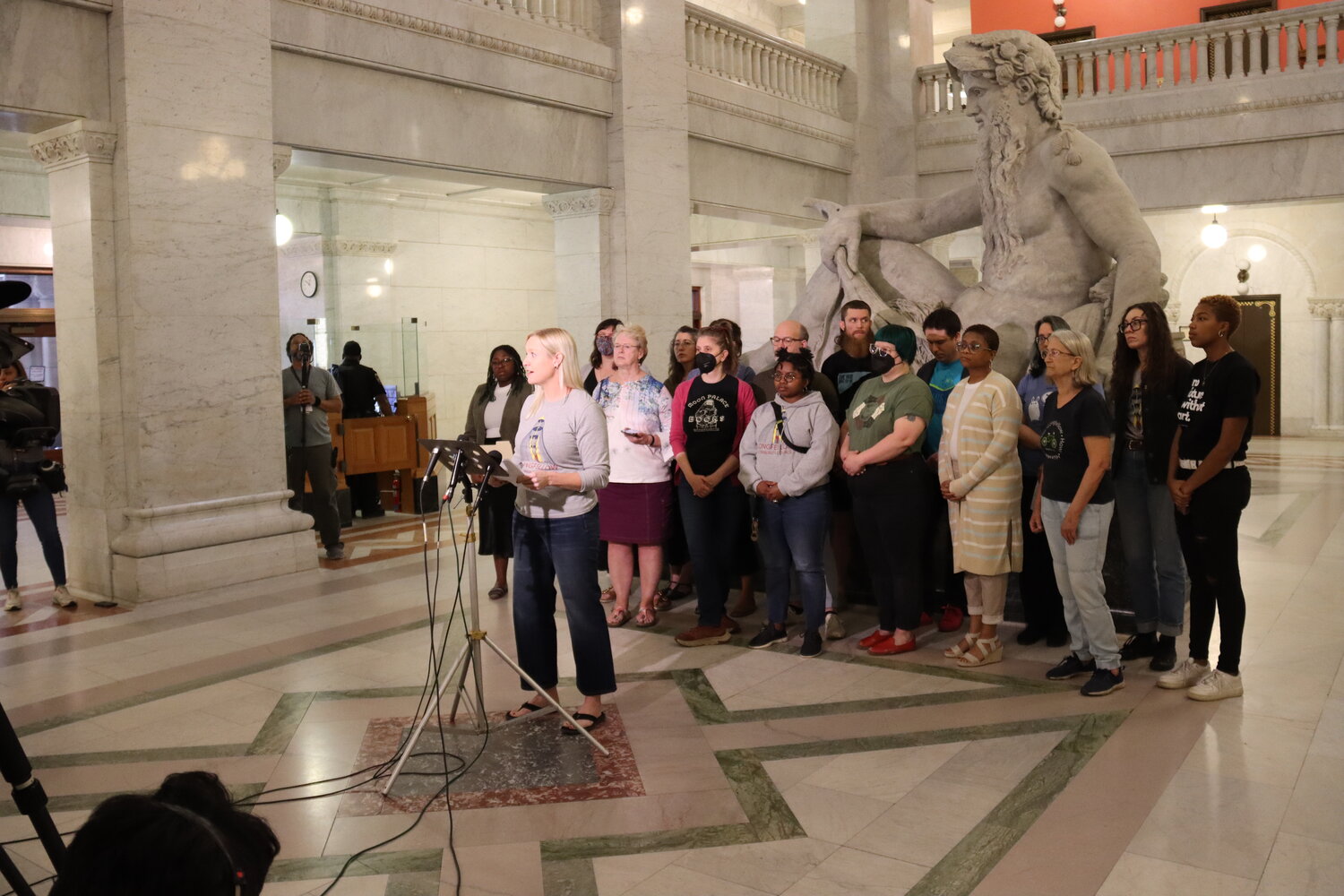
Hello and thank you for joining us today. My name is Rachel Boeke and I am the Executive Director for Longfellow Community Council serving the nearly 22,000 residents of the greater Longfellow community - made up of the Longfellow, Cooper, Hiawatha and Howe neighborhoods. Since the summer of 2020, residents and business owners have consistently reached out to LCC asking what was going to happen with the 3rd precinct police building sitting at the corner of Lake Street and Minnehaha Avenue. As we all know, that building remains as it has for three years. Surrounded in cement barriers and barbed-wire, it is a charred reminder of the uprising stemming from murder of George Floyd.
When we passed these questions along to city officials, we didn't get any answers. That led LCC to organize community conversations in May of 2022, bringing residents and business owners together to talk about their visions for the future of the building at 3000 Minnehaha Ave. and if it should be reopened as a precinct or put to another community use.
From those conversations we learned several things. First ,that there was a clear need for trauma recovery support for people across the city. People stated that no work had been done to support residents and businesses deeply impacted during the uprising of 2020. They said they felt abandoned by the city and excluded from any decisions being made that would impact the daily lives of so many. We also learned that the clear majority - 75% - of those who joined our conversations did not want police back in the location at Lake Street and Minnehaha Avenue stating reasons such as "Renovating that site for MPD would be crushing to the community - a direct insult to further traumatize the community and perpetuate harm."
After sharing the results of those conversations with the city, council member Robin Wonsley pushed for dedicated city funding for greater community engagement regarding what should happen to the former 3rd Precinct building. That effort passed council unanimously with the purpose of engaging community in broad conversation about where residents want the 3rd Precinct building - at the former site or in a new location - and how that building should serve the community.
It was only after the contract to do that work had been signed that a change of plan was announced. Instead of a year-long process, residents would have only weeks to provide feedback to the city. And instead of those larger community-led conversations, the question put to community was a short either or. The new process was just to ask residents if police should return to 3000 Minnehaha Ave or instead be located at 2600 Minnehaha, a short four blocks away. City officials indicated that a large list of properties were considered but only these two were potential options. The city has not released that list of properties or provided detailed information about why a larger list of options wasn't made available to residents. After nearly three years of inaction with the promise of intentional and thoughtful outreach, the accelerated timeline from the city with this process is opposed to the concept of real engagement.
I want to be clear about what LCC's role was in this current community outreach effort. Our task was to organize· locations for community meetings, inform residents and businesses across the 3rd Precinct that the events were happening and get people into the room to join the conversation· and share their opinions. LCC had to wait until the city's webpage, about the full outreach plan was live to share information about the community conversation meetings. That meant we weren't able to promote these events until 13 days before the first was scheduled to be held. As a neighborhood organization, LCC has to give community members a 21 day notice for big community decisions - like electing our board membership or large funding decisions. The future of the 3rd precinct building js an incredibly critical decision and deserves so much more than this current process has allowed.
LCC wanted to be involved in this community engagement process to include as many community members as possible believing that any decision about the future of the 3rd Precinct Site needs to be made by the people.
The city process became the opposite of that, which is why the LCC Board of Directors passed a resolution rejecting any decision made through this effort about the 3rd Precinct building until a new community engagement process has been carried out. An intentional and respectful community-led process with a focus on restorative justice.
LCC demands the development of a new timeline to define a shared community vision for a new facility or facilities, and how the former site of the 3rd Precinct should serve the community.
I stand here today with some of the 12 neighborhood organizations representing 19 neighborhoods of the 3rd precincts and 17 businesses and community organizations who have signed their support to that resolution.
Tesha M. Christensen
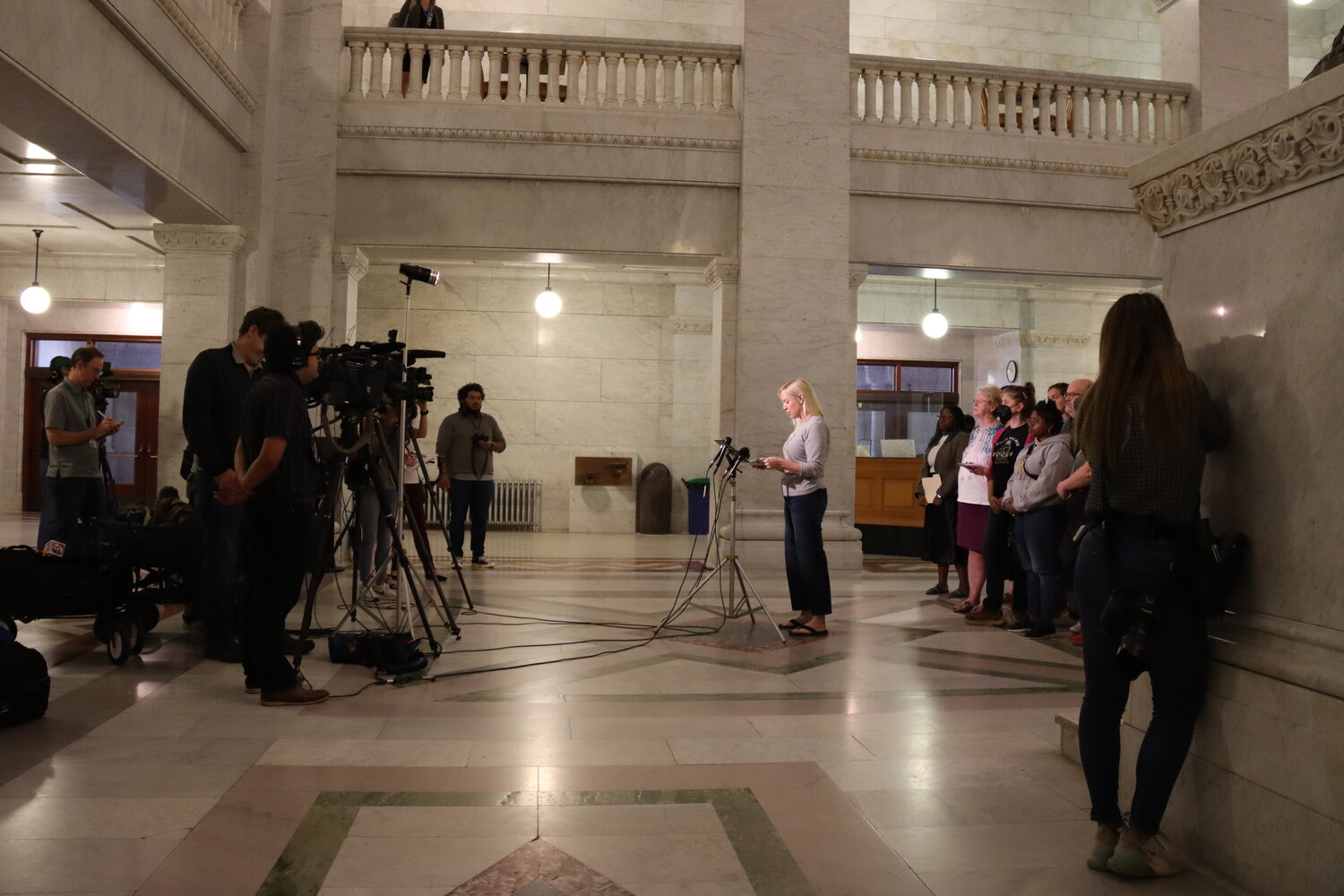
Hello and thank you for joining us today. My name is Rachel Boeke and I am the Executive Director for Longfellow Community Council serving the nearly 22,000 residents of the greater Longfellow community - made up of the Longfellow, Cooper, Hiawatha and Howe neighborhoods. Since the summer of 2020, residents and business owners have consistently reached out to LCC asking what was going to happen with the 3rd precinct police building sitting at the corner of Lake Street and Minnehaha Avenue. As we all know, that building remains as it has for three years. Surrounded in cement barriers and barbed-wire, it is a charred reminder of the uprising stemming from murder of George Floyd.
When we passed these questions along to city officials, we didn't get any answers. That led LCC to organize community conversations in May of 2022, bringing residents and business owners together to talk about their visions for the future of the building at 3000 Minnehaha Ave. and if it should be reopened as a precinct or put to another community use.
From those conversations we learned several things. First ,that there was a clear need for trauma recovery support for people across the city. People stated that no work had been done to support residents and businesses deeply impacted during the uprising of 2020. They said they felt abandoned by the city and excluded from any decisions being made that would impact the daily lives of so many. We also learned that the clear majority - 75% - of those who joined our conversations did not want police back in the location at Lake Street and Minnehaha Avenue stating reasons such as "Renovating that site for MPD would be crushing to the community - a direct insult to further traumatize the community and perpetuate harm."
After sharing the results of those conversations with the city, council member Robin Wonsley pushed for dedicated city funding for greater community engagement regarding what should happen to the former 3rd Precinct building. That effort passed council unanimously with the purpose of engaging community in broad conversation about where residents want the 3rd Precinct building - at the former site or in a new location - and how that building should serve the community.
It was only after the contract to do that work had been signed that a change of plan was announced. Instead of a year-long process, residents would have only weeks to provide feedback to the city. And instead of those larger community-led conversations, the question put to community was a short either or. The new process was just to ask residents if police should return to 3000 Minnehaha Ave or instead be located at 2600 Minnehaha, a short four blocks away. City officials indicated that a large list of properties were considered but only these two were potential options. The city has not released that list of properties or provided detailed information about why a larger list of options wasn't made available to residents. After nearly three years of inaction with the promise of intentional and thoughtful outreach, the accelerated timeline from the city with this process is opposed to the concept of real engagement.
I want to be clear about what LCC's role was in this current community outreach effort. Our task was to organize· locations for community meetings, inform residents and businesses across the 3rd Precinct that the events were happening and get people into the room to join the conversation· and share their opinions. LCC had to wait until the city's webpage, about the full outreach plan was live to share information about the community conversation meetings. That meant we weren't able to promote these events until 13 days before the first was scheduled to be held. As a neighborhood organization, LCC has to give community members a 21 day notice for big community decisions - like electing our board membership or large funding decisions. The future of the 3rd precinct building js an incredibly critical decision and deserves so much more than this current process has allowed.
LCC wanted to be involved in this community engagement process to include as many community members as possible believing that any decision about the future of the 3rd Precinct Site needs to be made by the people.
The city process became the opposite of that, which is why the LCC Board of Directors passed a resolution rejecting any decision made through this effort about the 3rd Precinct building until a new community engagement process has been carried out. An intentional and respectful community-led process with a focus on restorative justice.
LCC demands the development of a new timeline to define a shared community vision for a new facility or facilities, and how the former site of the 3rd Precinct should serve the community.
I stand here today with some of the 12 neighborhood organizations representing 19 neighborhoods of the 3rd precincts and 17 businesses and community organizations who have signed their support to that resolution.
Tesha M. Christensen
Ward 2 Council Member Robin Wonsley speaks at the Third Precinct Press Conference on May 16, 2023 at Minneapolis City Hall.
Tesha M. Christensen
Ward 2 Council Member Robin Wonsley speaks at the Third Precinct Press Conference on May 16, 2023 at Minneapolis City Hall.
Tesha M. Christensen
Third Precinct Press Conference May 16, 2023 Minneapolis City Hall
Tesha M. Christensen
Ward 2 Council Member Robin Wonsley speaks at the Third Precinct Press Conference on May 16, 2023 at Minneapolis City Hall.
Tesha M. Christensen
Ward 2 Council Member Robin Wonsley speaks at the Third Precinct Press Conference on May 16, 2023 at Minneapolis City Hall.
Tesha M. Christensen
Ward 2 Council Member Robin Wonsley speaks at the Third Precinct Press Conference on May 16, 2023 at Minneapolis City Hall.
Tesha M. Christensen
Third Precinct Press Conference May 16, 2023 Minneapolis City Hall
Tesha M. Christensen
Third Precinct Press Conference May 16, 2023 Minneapolis City Hall
Tesha M. Christensen
Third Precinct Press Conference May 16, 2023 Minneapolis City Hall
Tesha M. Christensen
Comments
No comments on this item Please log in to comment by clicking here